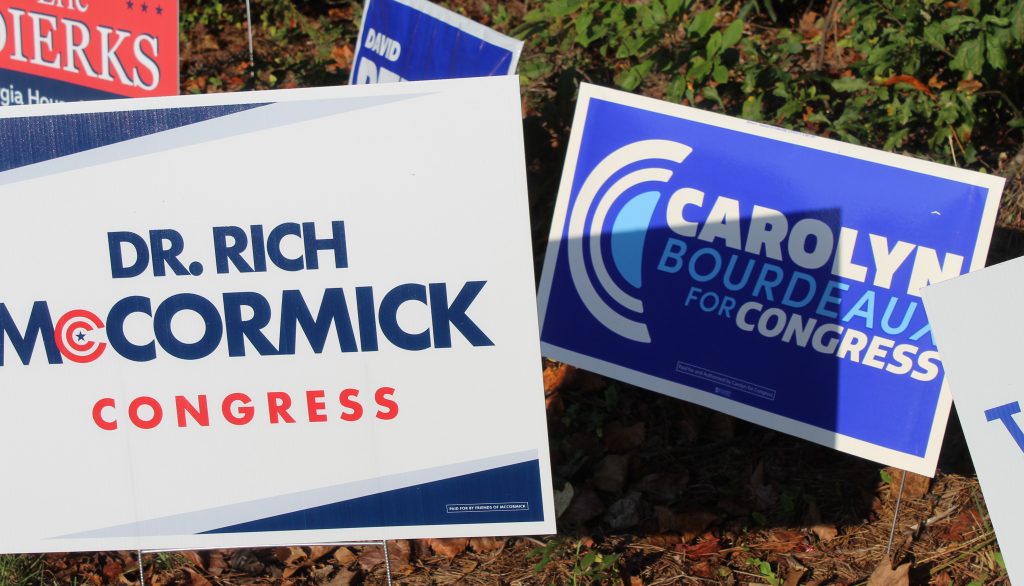Pandemic Response At Center Of Competitive 7th Congressional District Race

Rich McCormick and Carolyn Bourdeaux are vying to represent Georgia’s 7th Congressional District.
Emil Moffatt/WABE
At the start of this year, the economy, health care and immigration were among the most pressing issues in Georgia’s 7th Congressional District.
But since March, everything, it seems, has been overshadowed by the coronavirus pandemic.
“I think people are really frustrated with what’s happening in this country,” said Democrat Carolyn Bourdeaux, who is running for the seat again this year after losing by just over 400 votes in 2018. She’s a professor at Georgia State who worked at one time in the Georgia Senate budget office.
Bourdeaux calls the federal and state response to COVID-19 a “meltdown.”
“It did not have to be this bad; we did not have to have this many people die in this country from this disease,” said Bourdeaux. “And that has come from [an] incompetent, mismanaged response.”
She says the federal government should take a central role, not only helping to curb COVID-19 cases but also to stimulate the economy. Bourdeaux favors another round for the Paycheck Protection Program and other measures that will help businesses and workers.
“We need to support our workers through extensions in unemployment insurance and through support to people who are in the gig economy,” said Bourdeaux. “So many people now work in this informal economy, and they’re not part of the unemployment insurance system. And so we need to make sure they have the support they need to be able to make it through the crisis as well.”
Changing demographics in Georgia’s 7th Congressional District, which is made up of parts of Gwinnett and Forsyth counties, have helped make it one of the most competitive in the country in recent years. U.S. Rep. Rob Woodall is not seeking another term after nine years in office.

Bourdeaux’s opponent, in what is shaping up to be another close outcome, is Republican Rich McCormick, an emergency room physician and military veteran. He says Americans will be dealing with COVID-19 for a very long time and that vulnerable populations have to be protected.
As for economic stimulus, he says there are certain bills before Congress right now that he would support “that would actually go to business owners and people who are out of work and medicine… people that need PPE and all the things that we need stimulus for,” said McCormick. “But unfortunately, they’ll never be brought to the floor to be passed.”
McCormick blames House Speaker Nancy Pelosi for this.
“I hope America is paying attention to what’s worked and what hasn’t worked,” said McCormick. “This is a fundamental question of what America is, what’s made it successful, and what’s failed in other states and shouldn’t be tried here as if it’s something new.”
Swing Voters
In the final days of the campaign, McCormick and Bourdeaux are fighting for the swing voters in the 7th District.
Even with a rapidly diversifying area, Matthew Gunning, a political scientist at Georgia Gwinnett College, says college-educated white people are the most likely to be swing voters in the district.
“Democrats see this as an opportunity to pick up votes, and Republicans are playing defense, and they’re trying to hang on to these voters that in the past would have turned out for candidates like Mitt Romney, for example,” said Gunning. “These are voters that are up for grabs in this cycle at every type of race: the presidential, the Senate and the House District.”








